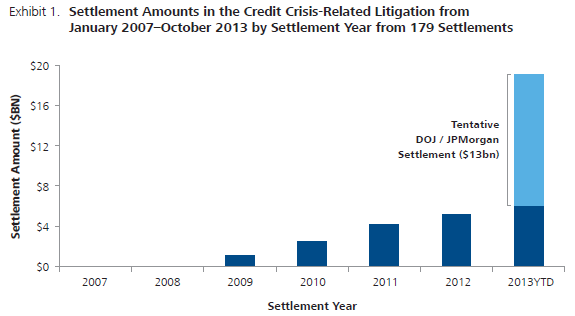Securities Lending Programs Next Wave of ERISA Litigation
Post on: 17 Июль, 2015 No Comment

November 19, 2008
Securities lending programs are commonly used by retirement funds as a means to produce additional income on securities portfolios and to offset fees. The trustee that holds securities in trust for a pension plan or 401(k) plan is authorized to lend them out to short sellers and other borrowers in exchange for cash as collateral. The cash collateral is then invested in “safe” investments, such as Treasury bills and money market instruments. Under typical securities lending agreements, the return on the invested cash collateral is split among the retirement fund (for the benefit of its participants), the trustee and the borrower of the securities. While the gains are usually small in percentage terms (because the collateral is required to be invested in low risk investments), they can add up to big dollars over time when a large portfolio of securities is involved.
Securities lending programs have been effective, historically, in increasing returns on investment portfolios and offsetting fees, but they have not been immune to the recent credit crisis. As once reliable investments drop in market value due to the “flight to quality” and liquidity needs, securities lending programs have seen losses for the first time ever. The losses are realized when the cash collateral is invested in assets that drop in value, thus creating a deficiency between the book value of the cash collateral and the market value of the collateral investments. It is estimated that billions of dollars of losses have been sustained recently in securities lending programs. On the other hand, should the market improve and the collateral assets regain their value, at least some of these losses could potentially be erased.
However, the problem has already sparked litigation against financial institutions that manage securities lending programs by retirement funds and other investors who have suffered losses. Perhaps most notably, the BP Corporation pension plan committee filed suit late last month against Northern Trust Company, asserting multiple causes of action grounded in the fiduciary obligations prescribed by §§ 404, 409, and 502 of ERISA. The claims include an alleged failure to distribute the plan’s interests as required, the imprudent lending of securities, the imprudent investment of collateral, inadequate and untimely disclosure of losses, the failure to disclose a conflict of interest due to excessive lending of securities, the assignment of overstated valuations to assets in which collateral was invested and maintaining investment funds that did not meet specified performance objectives for the lending program.

If fiduciaries themselves are starting to take legal action, it surely will not be long before the plaintiffs’ class action bar also takes an interest in this issue, as participants see their retirement savings lose additional value in these already difficult economic times. Will this be the next wave of ERISA litigation, adding to the tsunami of so-called “stock drop” cases?
As trust companies disclose losses in their securities lending programs, retirement plan fiduciaries are faced with a multitude of questions. Should participation in a securities lending program be suspended, or is the fund better advised to sit tight and see whether future market developments will turn these programs around? Can a retirement fund withdraw from a lending program, reacquire all of the borrowed securities and avoid incurring losses? Do the fiduciaries’ ERISA obligations require them to pursue claims against the trust company, and if so, under what facts and circumstances? Would a voluntary contribution to the retirement fund by the sponsor be enough to stave off participant suits, and if so, how could such a contribution be structured strategically to achieve that end and comply with ERISA and the Internal Revenue Code?
Arent Fox is currently investigating issues relating to securities lending programs on behalf of some of its clients and expects that more lawsuits in this area are on the way. Inquiries should be directed to Carol Connor Cohen or Caroline Turner English of Arent Fox’s ERISA practice.














